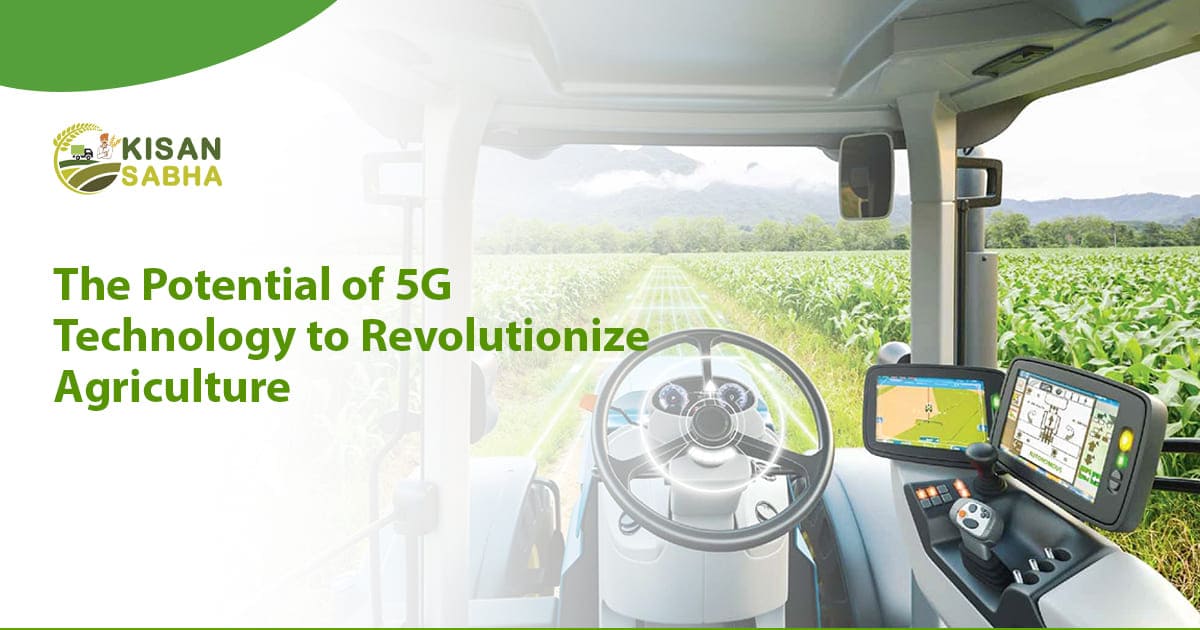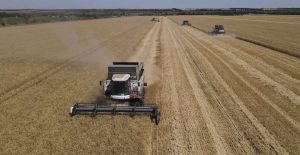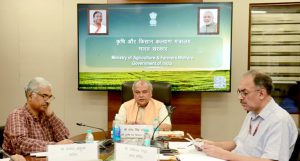Precision farming, machine learning, and Internet of Things (IoT) devices have all made significant technological advancements in recent years, transforming the agriculture sector. 5G is the newest technology that will transform agriculture. 5G technology has the potential to significantly alter the way farmers carry out farming and assist them in boosting productivity and efficiency.
The fifth generation of wireless networks, or 5G, promises to be more reliable, have faster speeds, and have lower latency. Compared to earlier wireless networks, 5G technology can transmit more data and operate at higher frequencies, making it perfect for farming applications that need a lot of bandwidth and quick response times. Here are a few ways that agriculture could change thanks to 5G technology:
5 Ways 5G Technology Will Revolutionize Agriculture
1) Precision farming:- By providing real-time data on crop health, soil moisture, and weather conditions, 5G technology can enable precision farming. However, farmers who use this information can maximize crop yields and minimize waste by choosing the best times to plant, irrigate, and fertilize their crops.
2) Autonomous Vehicles:- The use of autonomous vehicles in agriculture can boost productivity and lower labor costs. Examples include drones and tractors. These vehicles can communicate with one another and with centralized control systems thanks to 5G technology low latency and high bandwidth.
3) Livestock Monitoring:- The health and welfare of livestock can be tracked using 5G technology. Animals can have sensors attached to them to track their vital signs, level of activity, and feeding habits. However, real-time transmission of this data over 5G networks to central monitoring systems enables the early identification of health issues and prompt intervention.
4) Supply Chain Management:- By enabling real-time tracking of agricultural products from farm to table, 5G technology can enhance supply chain management. Products can have sensors attached to them to track temperature, humidity, and other environmental factors, ensuring that they are transported and stored in the best possible circumstances.
5) Smart Irrigation:- The use of sensors in smart irrigation systems that monitor weather conditions and soil moisture levels is made possible by 5G technology. Also with the help of these systems, farmers can automatically adjust irrigation schedules to maximize water use, cut down on waste, and boost crop yields.
Despite the enormous potential of 5G technology in agriculture, some issues must be resolved. For instance, rural areas, where most farms are situated, need reasonably priced 5G devices and infrastructure.
Furthermore, there are worries about data security and privacy because delicate agricultural data may be subject to cyber-attacks.
5G technology has the potential to revolutionize agriculture by enabling smart irrigation, autonomous vehicles, supply chain management, livestock monitoring, and precision farming. The advantages of 5G technology in agriculture are too significant to ignore, even though some issues need to be solved. We can anticipate significant advancements in farm productivity, efficiency, and sustainability as 5G technology spreads.
Also Read:- Benefits of Using Crop-Spraying Drones in Precision Agriculture
Improving Efficiency by Connecting Rural Farms with 5G
The 5G revolution, which has the potential to completely change industries, is drawing nearer. The agricultural industry holds great promise for 5G technology to assist farmers in rural areas improve productivity and sustainability.
Rural farming could be transformed in several ways by 5G technology. The increased connection speeds and bandwidth that 5G offers are the most obvious advantages. Farmers will be able to monitor and manage their farms remotely as a result, increasing productivity and efficiency. Sensor data can help optimize irrigation and fertilizer schedules, while 5G-enabled drones and robots monitor livestock and crops
Farmers can now access real-time data and analytics on the weather, soil quality, and other environmental factors thanks to 5G technology. Also, this information can he to anticipate risks, lessen their impact, and boost crop yields. Additionally, 5G technology can support precision agriculture, enabling farmers to optimize resource use and lessen environmental impact.
Finally, 5G technology may make it possible for farmers in rural areas to reach new markets. Farmers can sell their produce to customers all over the world without the use of physical transportation by connecting their farms to the Internet. Also, for farmers, this could open up a tonne of brand-new markets, boosting their revenue and making them more competitive.
Conclusion
5G technology has the potential to completely transform the agricultural industry and improve farming’s sustainability and efficiency. However, the promise of technology to create new opportunities and boost productivity makes this an exciting time for farmers in rural areas.




